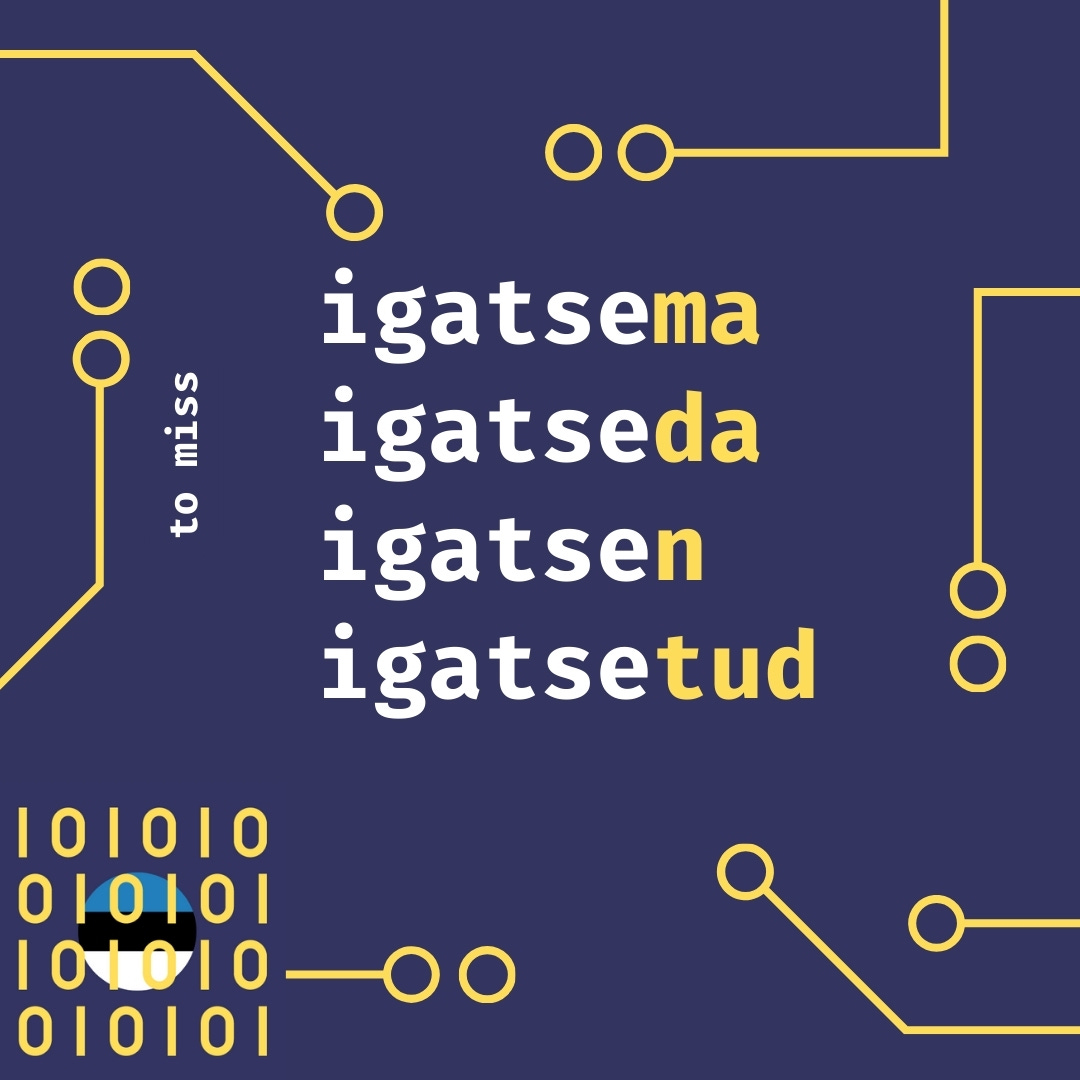Vocab: igatsema
to miss
to miss, to long for, to yearn for, to crave
Building blocks
iga- - every/all
-tse- - continuative (indicates an action is ongoing or extending over time)
-ma - infinitive ending
It's derived from the noun "iga" (every, all). This connection is evident in the verb's meaning, which suggests a longing for something complete or whole.
How to use it
Longing for Someone or Something:
“Ma igatsen oma perekonda.” (I miss my family.)
Missing a Place or Location:
“Ma igatsen oma lapsepõlvekodu.” (I long for my childhood home.)
Longing for a Past Experience or Time:
“Igatsen aegu, mil kõik oli lihtsam.” (I miss the times when everything was simpler.)
Yearning for something you haven't achieved:
“Ma igatsen reisimist ja maailma avastamist.” (I yearn to travel and explore the world.)
Things to note when using the verb igatsema:
Whom or what you miss is in the Partitive case (third base form)
Or instead of Partitive you can also use Genitive + add the word “järele” (after). (Look at the examples below ⬇️)
Examples
Mu igatsen su puudutust
Literally: “I yearn your touch”
Idiomatically: “I yearn for your touch”
Ma - Pronoun - Nom Sg, "I"
igatsen - Verb - 1P Present Sg, "yearn for"
su - Pronoun - Genitive Sg, "your"
puudutust - Noun - Partitive Sg, "touch"Ma igatsen su puudutuse järele
Literally: “I yearn your touch after”
Idiomatically: “I yearn for your touch”
Ma - Pronoun - Nom Sg, "I"
igatsen - Verb - 1P Present Sg, "yearn for"
su - Pronoun - Genitive Sg, "your"
puudutuse - Noun - Genitive Sg, "touch"
järele - Adverb - Indeclinable, "after"

